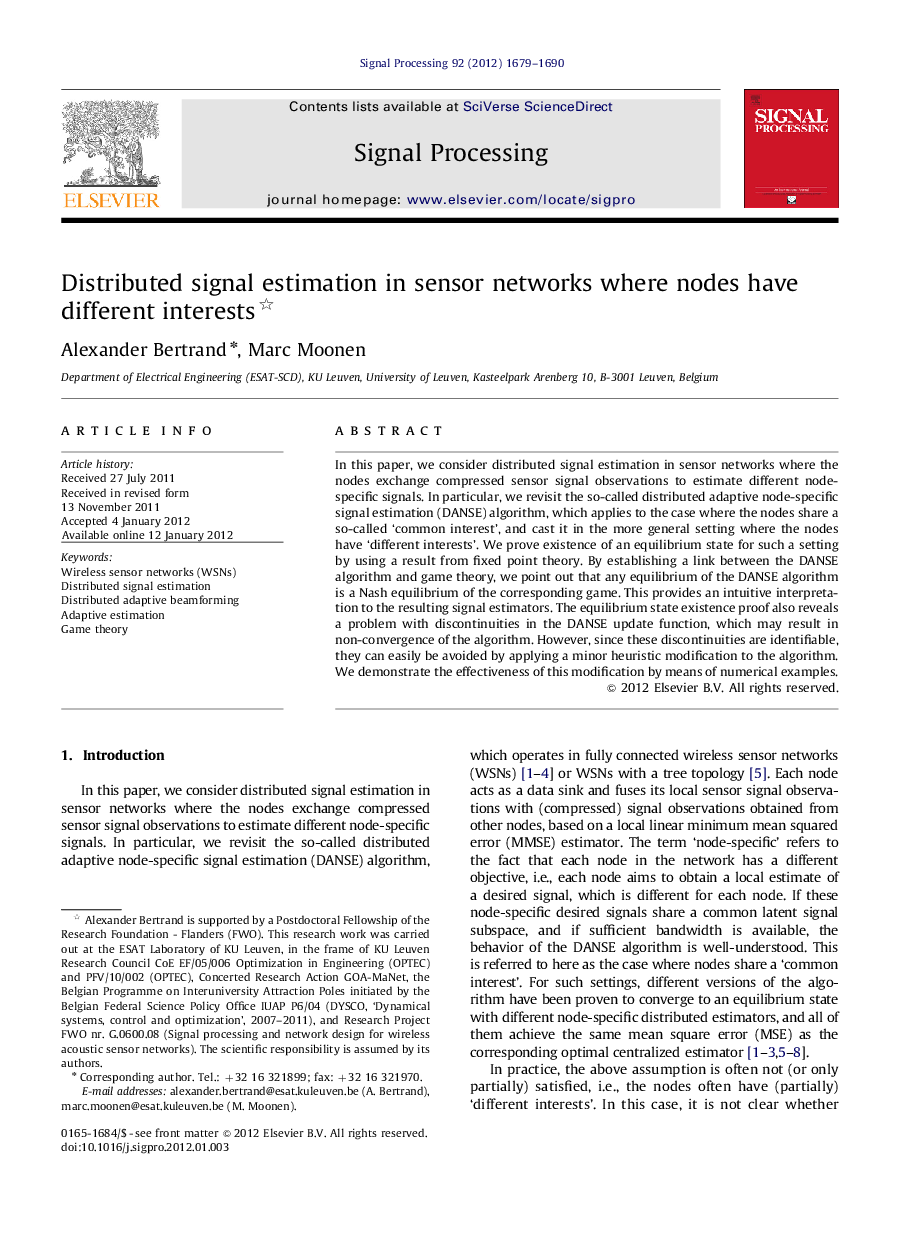| Article ID | Journal | Published Year | Pages | File Type |
|---|---|---|---|---|
| 562754 | Signal Processing | 2012 | 12 Pages |
In this paper, we consider distributed signal estimation in sensor networks where the nodes exchange compressed sensor signal observations to estimate different node-specific signals. In particular, we revisit the so-called distributed adaptive node-specific signal estimation (DANSE) algorithm, which applies to the case where the nodes share a so-called ‘common interest’, and cast it in the more general setting where the nodes have ‘different interests’. We prove existence of an equilibrium state for such a setting by using a result from fixed point theory. By establishing a link between the DANSE algorithm and game theory, we point out that any equilibrium of the DANSE algorithm is a Nash equilibrium of the corresponding game. This provides an intuitive interpretation to the resulting signal estimators. The equilibrium state existence proof also reveals a problem with discontinuities in the DANSE update function, which may result in non-convergence of the algorithm. However, since these discontinuities are identifiable, they can easily be avoided by applying a minor heuristic modification to the algorithm. We demonstrate the effectiveness of this modification by means of numerical examples.
► The ‘common interest’ model of DANSE is often not or only partially satisfied. ► We analyze the DANSE algorithm in the case where nodes have ‘different interests’. ► We prove existence of an equilibrium state of the DANSE algorithm. ► Any equilibrium state of the DANSE algorithm is a Nash equilibrium. ► A modification to the algorithm improves robustness in ill-conditioned scenarios.
